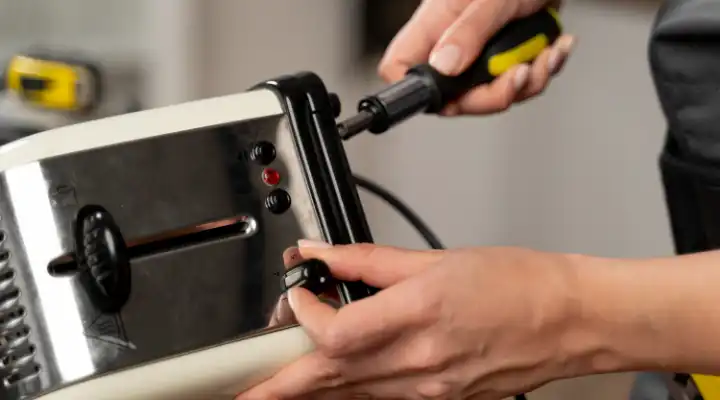In the era of YouTube tutorials and social media tips, many people feel encouraged to try home repairs on their own. This “do it yourself” (DIY) culture can be helpful and economical… as long as you know your limits. When it comes to appliances, there is a clear line between what you can safely fix yourself and what should be left to a professional.
In this article, we explain which repairs you can do yourself and when it’s best to call a specialized technician.
Repairs You Can Do Yourself
There are simple tasks that you can perform without risk, and that also help keep your appliances in good condition. Here are some examples:
- Cleaning filters and vents
Applicable to air conditioners, washing machines, dryers, and vacuum cleaners. You just need to remove the filter, clean it with water or a dry cloth, and put it back.
- Unblocking hoses or drains
If your washing machine isn’t draining properly, it might be a minor blockage. You can visually check for lint or debris and carefully remove it.
- Replacing light bulbs or covers
Some microwaves and refrigerators have replaceable internal lights. Check the manual to find the correct replacement.
- Resetting a device from the control panel
Many modern appliances have a “reset” function. If the appliance shows a minor error, restarting it can fix the issue.
Tip: Always unplug the appliance before doing any intervention, no matter how small.
Repairs That Should Be Done by a Professional
Attempting these repairs yourself can be dangerous or make the problem worse:
- Electrical issues or internal wiring
Handling internal electrical connections without proper knowledge can cause short circuits or even fires.
- Failures in the electronic control board
Many modern appliances rely on a control board. Repairing it requires specialized tools and advanced technical skills.
- Handling refrigerant gases in refrigerators or air conditioners
Refrigerant handling must be done with appropriate equipment and following environmental regulations. Additionally, precise recharging is necessary for the system to work correctly.
- Replacing complex internal parts
Motors, sensors, or pumps require disassembling the appliance, testing, and recalibrating the system, which should never be improvised.
Why Call a Specialized Technician?
- You avoid major damages that can be more costly.
- You preserve the factory warranty (if applicable).
- You ensure a safe and lasting repair.
- A technician can detect hidden faults that you might not notice.
Attempting DIY repairs can save you time and money—if you know when to stop. Basic cleaning or inspection tasks are totally doable, but technical or risky jobs should be handled by professionals.
At our technical workshop in Panama, we help you evaluate your case and offer reliable diagnostics. Before taking things apart yourself, contact us. Sometimes timely advice can prevent costly repairs.

